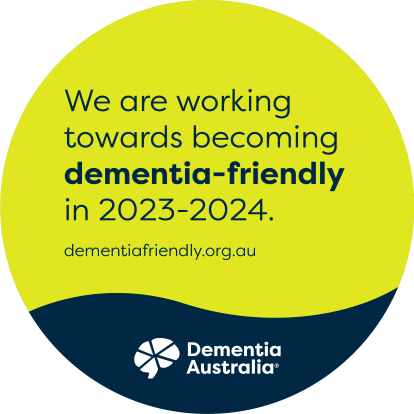Dementia
What is dementia?
Dementia is an umbrella term referring to a condition caused by different neurocognitive disorders. The neurocognitive disorders causing dementia can be grouped based on their aetiologies into progressive neurodegenerative disorders and other conditions that cause dementia. The progressive neurodegenerative disorders include conditions such as Alzheimer’s disease, Vascular dementia, Frontotemporal or Lewy body dementia. In some cases, there might be combinations of these conditions causing what is called Mixed dementia. Dementia can, however, result from other conditions, such as Parkinson’s disease, Huntington’s disease, or Creutzfeldt-Jakob disease. Some dementia-like symptoms can also be caused by acquired deficits due to infections and immune disorders (HIV), medication and substance use side effects, or brain injuries or tumors.
The experiences of people living with dementia differ individual to individual. Cognitive changes are commonly observed in dementia, and include memory and communication difficulties, impairment to visual and spatial abilities which can cause disorientation and difficulties with coordination. Some other frequently reported symptoms include difficulty finding words, planning, problem-solving or completing complex tasks. Furthermore, people living with dementia often report a variety of psychological and behavioural changes, such as experiences of depressive or anxious mood, hallucinations, or sleep disturbances.
What causes dementia?
Dementia is caused by damage to the brain nerve cells (neurons) and their connections. Although researchers have been able to describe the changes in brain that occur in dementia, not all causes are currently known as to why these changes occur in some people. While genetic predispositions can contribute to the development of some dementias (e.g., Alzheimer’s disease), others are caused by direct brain damage (e.g., due to traumatic brain injury or alcohol-related brain damage). Other conditions that can cause dementia, such as Parkinson’s disease, are still a subject of scientific research.
What dementia research is being done at UQCCR?
The Dementia and Neuro Mental Health Research Unit at the UQCCR focuses on the psychosocial aspects of living with dementia and providing support for better post-diagnostic care. This includes research focusing on the evaluation of prescribing psychotropic medications and residential care models for better mental health support of the residents.
Furthermore, our studies aim to provide evidence-based nonpharmacological alternatives to alleviate anxiety, one of the psychological symptoms that is often experienced by people living with dementia in various stages of the disease. With a strong focus on increased accessibility and implementation in clinical practice, we have been developing and testing psychotherapeutic programs to be delivered remotely, via telehealth and a smart voice assistant application. Aiming to contribute to meaningful, ongoing post-diagnostic support and ability building in everyday life, we have been including people with living experiences, their support persons, and stakeholders to actively participate in the co-design of our research studies. Projects include:
- Technology Assisted and Remotely Delivered Cognitive Behavioural Therapy Intervention for Anxiety in People living with Cognitive Impairment: Randomised Controlled Trial
- MHICare: Mental Health Benchmarking Industry Tool for Residential Aged Care
- Psychotherapy via telehealth video-conferencing to treat anxiety
- Designing and developing technology to remotely deliver psychotherapy for anxiety to people living with cognitive impairment
Currently recruiting
Research groups
Dementia & Neuro Mental Health Research Unit (Dissanayaka Group)
Neurodegeneration Clinical Research Group (O'Sullivan and Adam)
Fast facts
In 2022, there are an estimated 487,500 people living with dementia in Australia, and about 55 million worldwide.

UQCCR is the first research centre in Australia to submit an action plan to Dementia Australia’s Dementia-Friendly Communities program and gain formal recognition for our commitment to work towards becoming dementia-friendly.
